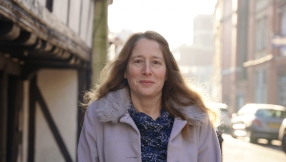
In Part 1, I described the current situation in the increasingly totalitarian Church in Wales, and noted the similarities between the Church in Wales and the Church of England. I ended with the dilemma of support for needy LGBTQ communities, and wondered if progressives might be right after all.
Much better help
Though few appear aware, there are powerful, orthodox-friendly responses to LGBTQ challenges which give those who identify as such much better help and support than progressives ever could.
Organisations like Core Issues Trust and the IFTCC [The International Federation for Therapy and Counselling Choice] are doing this now. See for instance the IFTCC's magisterial Declaration and its 2021 Hungary conference, 'Supporting and Counselling those Leaving LGBT Identities and Behaviours'.
These resources offer cutting-edge, life-giving insights from different therapies, areas of research, and pastoral care in the context of important cultural, social and legal developments, while underpinning freedom and the right to choose how best to live one's life.
But a key issue here is that no one is 'born gay', nor is gay innate, stable or inherently permanent. People can and do change. This is possible because sexuality is fluid.
As the IFTCC Declaration states, "Across the world, robust studies have established that sexual fluidity can happen in both directions, that change to or towards heterosexual attraction is common, and this is not limited to the 'mostly-heterosexual' ... SSA [Same Sex Attraction] is not a mirror image of OSA [Opposite Sex Attraction]. For the respective populations involved, OSA is overwhelmingly fixed. SSA is overwhelmingly fluid and most often comes with opposite-sex attraction too. Persons with both-sex attractions commonly experience fluidity in sexual attraction feelings and behaviour."
In fact, the approaches of entities like CIT and the IFTCC are thoroughly biblical, pastoral, psychologically informed and sophisticated. Everyone's story is different, and there are no silver bullets, but many are able to resolve their issues and move into a happier, healthier life through this avenue. Appropriate counselling has played a major role in helping individuals along their chosen path of personal development.
Reintegrative Therapy and SOCE/SAFE-T
Popular psychological approaches which are now offered include Reintegrative Therapy and SOCE [Sexual Orientation Change Efforts]. And to note, former SOCE practitioners have a new title which more accurately defines what is involved: SAFE-T [Sexual Attraction Fluidity Exploration in Therapy].
But back to SOCE. According to Rev Dr Paul Sullins, a Research Professor of Sociology at The Catholic University of America, "A minor fraction of SOCE participants achieve opposite-sex attraction; a fraction more functional heterosexual function; a major fraction reduction in same-sex attraction; and even more, better management or disposition of conflicts between what they believe about sexual morality and how they behave. As far as change goes, SOCE or not, more people desist from homosexuality than persist in it over a lifetime."
Negatives
Though the complaint is made that such therapies do not automatically work for everyone, all therapies and projects for human betterment - regardless of issues or therapeutic interventions etc - are of limited value.
There is no 'one size fits all', from AA and drug rehabilitation programmes to Slimming World and Anti-Smoking Campaigns. This does not mean we rubbish them but it does mean that we recognise their limitations.
So why has the bar been placed at such a high level in this one particular sphere? How is this fair?
Even the church - perhaps especially the church! - has vast numbers of 'ex's' over the millenia and up to now for whom Christianity apparently did not 'work'. They have gone on to reject Christ and influence others to do the same.
How do we respond? Do we agree with them and fold up shop, as it were, or challenge their claims by unpacking where things went wrong, and encourage them to 'try again', perhaps in a different way?
CS Lewis' journey from belief to rejection to a proper, better way of believing comes to mind.
Symptom, not cause
One of the key principles here is that same-sex attraction is a symptom, not the fundamental problem or problems. Until those are addressed, same-sex attraction will remain a dominant, often unwanted but invisible, controlling feature.
Former gay, Dr Floyd Godfrey, notes, "Homosexuality is the sexualisation of legitimate, emotional needs and wounds." He unpacks this more in his powerful autobiographical work, A Young Man's Journey: Healing for Young Men with Unwanted Homosexual Feelings.
Another former gay, counsellor Christopher Doyle notes that such attractions "will remain until the individual discovers the meaning of them and fulfils them in legitimate, non-sexual ways".
Former gay rights activist, James Parker, walks us through his tragic young life of abandonment, abuse and misery. His 'coming out' gay life not only did not help his overall welfare, but seriously compounded his problems.
In fact, James completely embraced his 'gayness' with Steve, his 'Mr Right' along with 200-plus outside male sexual partners, and that during a relatively short period of time. However, he explains that this 'out and proud' life did not begin to give him what he needed or even actually wanted.
A thriving Christian ex-LGBT world
James is part of a thriving global ex-LGBT world which includes X-Out Loud; TrueLove.is; Desert Stream and the CHANGED Movement whose slogan is 'We left the LGBT Community because we wanted to'.
Jesus has our whole life in focus, not simply the parts we are most aware of. It is misdirected to focus inordinately on transformation primarily within our sexuality. A healthy approach for people who experience same-sex attraction and gender confusion is to pursue self-understanding in light of a biblical standard for human identity. This process seeks fellowship with the Holy Spirit to examine our past and gain closure for past traumas, but puts most effort on becoming more like Jesus by focusing on Him.
Sadly, however, such groups are mostly unknown, as they receive very little airtime within the Evangelical world, and that for a whole host of reasons, one of which is the assertions advanced by 'authorities' who consciously or subconsciously misunderstand and misrepresent what is involved to the wider public.
How is that fair?
The penny is starting to drop
We are now (finally!) starting to realise the nature of proper help for 'trans' youngsters. It is therapy which enables them to get beneath the powerful desires to 'change their sex' (as if that actually happens!) by social transitioning, hormones and surgery. Capitulating to their desperate cries of trans affirmation is neither loving nor even effective, at least in the long run.
In fact, for many de-transitioners, they now have double the trouble, as the initial problems were never dealt with, but now their bodies have been irreversibly altered and damaged as well.
A word to the clergy
Unless a miracle has happened, your congregation is in an invisible civil war in terms of these matters. Those who still have managed to maintain an orthodox sexual ethic (somehow) need help to maintain it.
Remember Rosaria Butterfield's caution from Part 1 about how your position puts you out of reach of the very people you think you know?
One of the most effective LGBTQ strategies (from Marshall Kirk and Hunter Madsen's brilliant After the Ball) has been to 'come out, come out, wherever you are!' And, it has worked to perfection in creating heterosexual 'allies'.
Heterosexuals who personally know LGBTQ folk - and I mentioned the particular pressure on parents of 'LGBTQ' children in Part 1 - have a far harder time 'holding the line' in general. They know and like their lovely gay mates, many of whom have obviously been through the wars and carry the scars. Why would anyone want to make things even more difficult for them? And isn't that what biblical Christianity does?
Most heterosexuals know only what the BBC want them to know about these lifestyles and communities. The realities are often very different and far darker, but it is the kiss of death professionally to expose them: who wants that?
Also, they tend to be ignorant of the whole ex-LGBTQ realm; they do not realize that other, better options, even exist.
In my third and final installment, 'Going, Going, Gone?': Our Young and the LGBTQ, I will look at other 'clobber claims' used by progressives and especially effective with youngsters.
Dr Lisa Nolland is CEO of the Marriage Sex and Culture Group, London.













